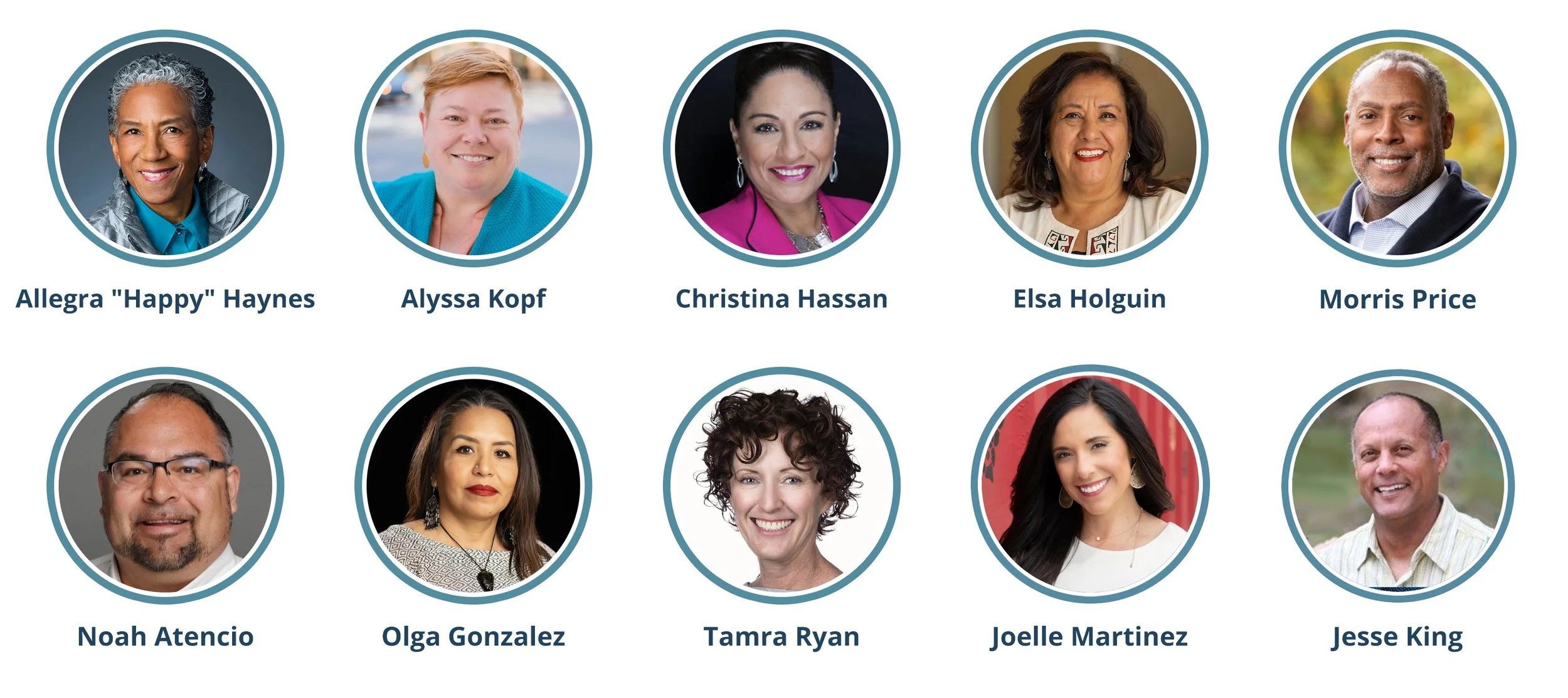Pathways Update: Ten Extraordinary Mentors Join Inaugural Cohort
Ten dedicated Mentors with extensive experience spanning the non-profit, governmental, philanthropic, and business sectors joined our mid-career social sector Leaders to launch the inaugural Pathways Program cohort.
These dynamic partnerships between Leaders and Mentors will foster meaningful opportunities to exchange knowledge and expertise, hone skills, expand networks, and accelerate the already incredible impact led by this cohort of change-makers within metro-Denver communities.
Pairs gathered in late January for the first of four cohort learning sessions. The time was spent building community, grounding in shared expectations and purpose, and planning for the journey ahead. Welcome Pathways cohort!
We are thrilled to announce and welcome our inaugural cohort of ten extraordinary Mentors to the Pathways Program:
Program Background
In early 2024, the Barton Institute engaged in community listening. We wanted to hear from organizational leaders who identify as Black, Indigenous, and people of color (BIPOC), LGBTQ+, and/or as someone with a disability to learn about their challenges and the barriers they face while trying to do their work.
In total, we talked with 50 leaders of social change organizations, and we heard:
Leaders with marginalized identities are seeking connection and support.
Leaders with marginalized identities are burnt out and exhausted.
Funding appeared rapidly in the early pandemic years and has begun to disappear. Many participants shared challenges in scaling up and down with the availability of funding.
Funders are less committed to diversity, equity, and inclusion (DEI)-centered efforts and in the growth/stability of leaders with marginalized identities.
Current funding and philanthropic support rarely acknowledges or addresses intersectionality (race, gender, sexual orientation, language, immigration status, disability, etc.) within communities and experiences.
In addition to these themes, leaders shared that they need:
Space and time for community and connection;
Hyper-individualized, intensive, identity-based mentorship;
Ongoing capacity building and sustainability support for themselves and their organizations; and
The sector as a whole should engage in education and coaching about the challenges facing social change leaders and their organizations.

